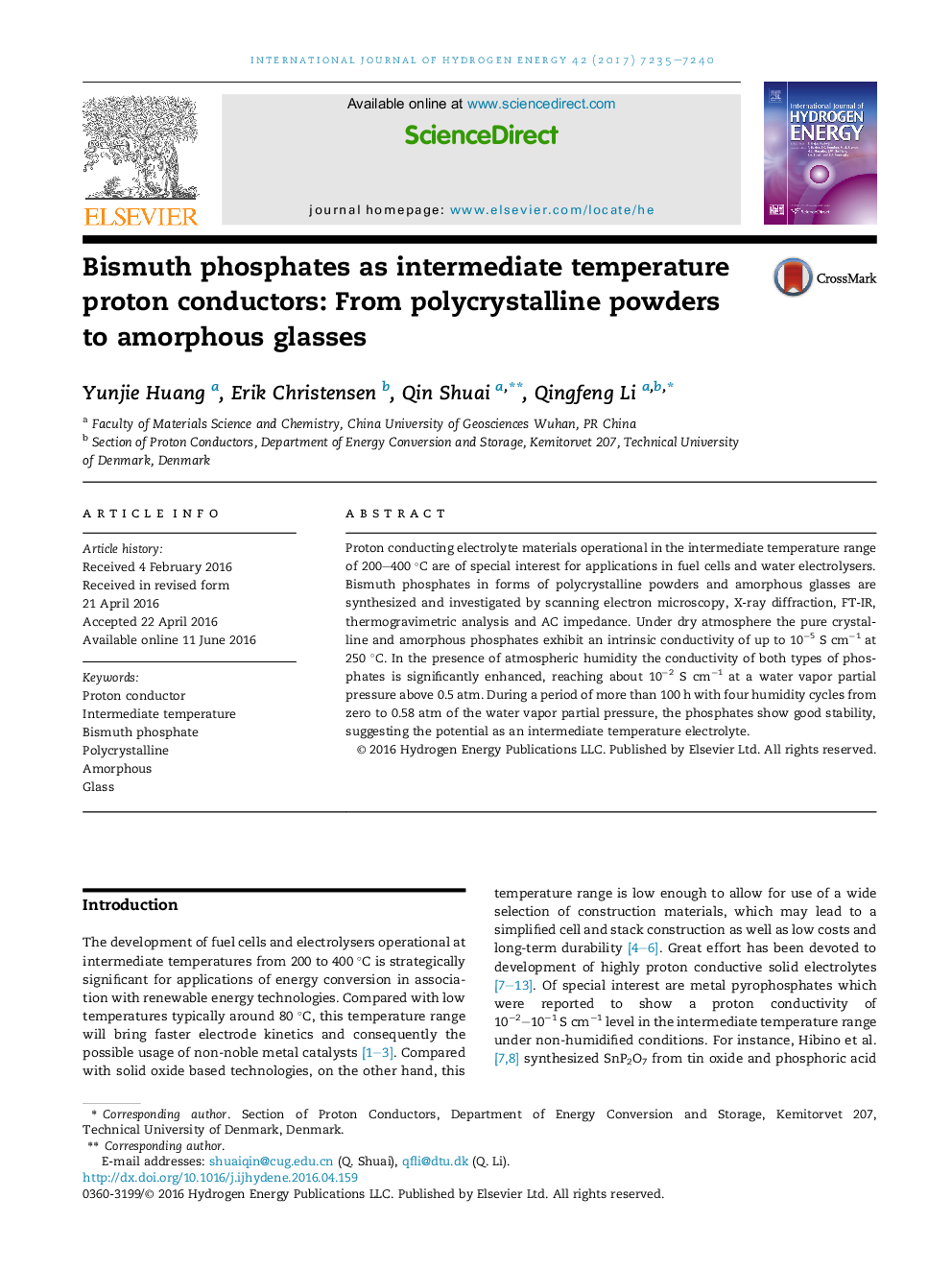| Article ID | Journal | Published Year | Pages | File Type |
|---|---|---|---|---|
| 5146163 | International Journal of Hydrogen Energy | 2017 | 6 Pages |
â¢Polycrystalline and amorphous glasses of bismuth phosphates prepared.â¢Major crystalline phases of monoclinic Bi2P4O13 and monoclinic BiPO4.â¢Intrinsic anhydrous proton conductivity of up to 10â5 S/cm.â¢High conductivity of 10â2 S/cm level under humidified atmosphere.â¢Good conductivity stability during humidity cycling for over 100 h.
Proton conducting electrolyte materials operational in the intermediate temperature range of 200-400 °C are of special interest for applications in fuel cells and water electrolysers. Bismuth phosphates in forms of polycrystalline powders and amorphous glasses are synthesized and investigated by scanning electron microscopy, X-ray diffraction, FT-IR, thermogravimetric analysis and AC impedance. Under dry atmosphere the pure crystalline and amorphous phosphates exhibit an intrinsic conductivity of up to 10â5 S cmâ1 at 250 °C. In the presence of atmospheric humidity the conductivity of both types of phosphates is significantly enhanced, reaching about 10â2 S cmâ1 at a water vapor partial pressure above 0.5 atm. During a period of more than 100 h with four humidity cycles from zero to 0.58 atm of the water vapor partial pressure, the phosphates show good stability, suggesting the potential as an intermediate temperature electrolyte.
